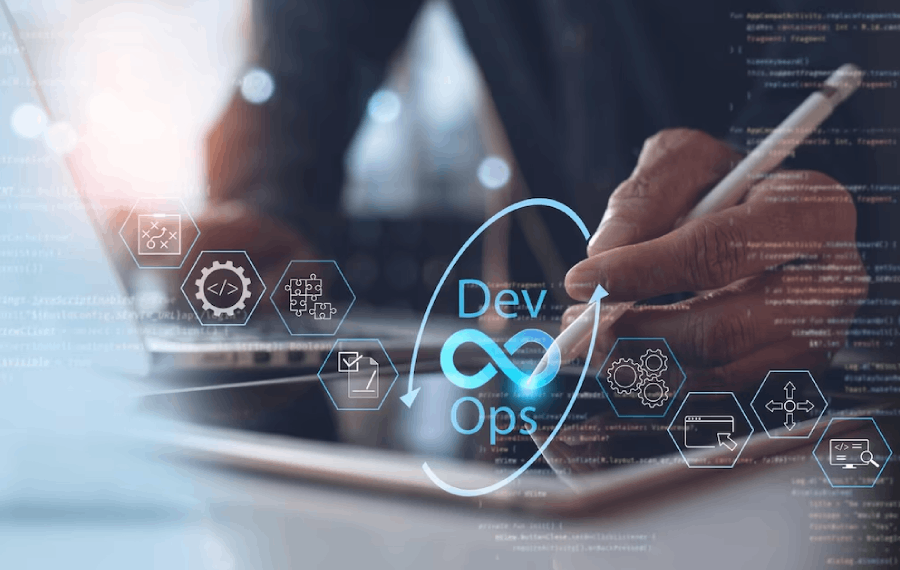Why DevOps is the Perfect Career Change for Non-Technical Professionals
- By Dipayan Sharma
- Blog
- 1.76k
- 0 Comments
Understanding DevOps: A High-Level Overview
Why Non-Technical Professionals are a Great Fit for DevOps
- Strong Communication Skills Non-technical professionals often come from backgrounds like project management, sales, marketing, or customer support, where communication and collaboration are key. Since DevOps focuses heavily on collaboration and understanding client needs, non-technical professionals bring valuable communication skills to the table. They can bridge gaps between technical teams, clients, and stakeholders, ensuring everyone is aligned on project goals.
- Project Management Experience DevOps projects often require clear timelines, deliverables, and process improvements. Non-technical professionals with project management skills already have experience managing resources, timelines, and expectations, which are crucial in DevOps practices. Their experience with frameworks like Agile can also be beneficial in coordinating sprints and managing iterations.
- Problem-Solving Skills Successful DevOps practices involve constant problem-solving to improve workflow, eliminate bottlenecks, and create better software. Professionals from diverse fields bring unique perspectives and are often adept at analyzing situations and finding creative solutions, making them ideal for DevOps roles focused on enhancing efficiency.
- Customer-Centric Approach Non-technical professionals often have customer-facing experience, which gives them insight into customer needs and preferences. In DevOps, this understanding can be valuable when developing applications or services, as they can advocate for features that align closely with user expectations.
- Continuous Learning and Adaptability The DevOps landscape is continually evolving, requiring professionals to stay updated on best practices, tools, and methodologies. Non-technical professionals with a growth mindset and adaptability can thrive in this environment, especially with the availability of comprehensive training programs.
Essential Skills for Non-Technical Professionals Transitioning into DevOps
- Basic Coding and Scripting Learning basic coding in languages like Python or shell scripting can be beneficial. Many DevOps tasks involve automation, and scripting knowledge can help automate repetitive tasks.
- Understanding of Cloud Computing DevOps relies on cloud platforms like AWS, Azure, and Google Cloud for deploying, managing, and scaling applications. Non-technical professionals can benefit from understanding cloud fundamentals, which are widely covered in many DevOps certification programs.
- Familiarity with Automation Tools DevOps involves extensive automation for tasks like code testing, integration, and deployment. Tools like Jenkins, Docker, and Kubernetes are commonly used, and understanding these tools can be advantageous for professionals aiming to transition into DevOps.
- Version Control Systems Familiarity with version control tools like Git is critical, as these tools help track code changes and collaborate with development teams effectively.
- Collaboration and Agile Methodologies Since DevOps relies on collaboration and agile practices, a good understanding of Agile methodologies, such as Scrum, will be highly valuable. These methodologies enhance teamwork and streamline processes, aligning with DevOps goals.
How DevOps Certification Programs Can Aid Non-Technical Professionals
DevOps Best Practices Training DevOps courses emphasize best practices, including CI/CD pipelines, infrastructure automation, and monitoring, which are critical for career success in this field. By learning these best practices, professionals can apply DevOps principles efficiently in real-world scenarios.
Practical Hands-On Training Many DevOps certification programs include hands-on labs and projects. For instance, the best online DevOps training institute or best offline DevOps training institute offers practical exercises, which help learners gain real experience with tools like Jenkins, Docker, and Kubernetes.
Affordable DevOps Training with Placement Assistance Many DevOps courses in Bangalore provide affordable learning options, flexible class schedules, and placement assistance. By choosing the best DevOps course in Bangalore with placement support, non-technical professionals can secure job opportunities in DevOps roles right after completing their training.
Targeted DevOps Courses with Clear Outcomes Some institutes offer DevOps certification courses in Bangalore specifically designed for career changers, with targeted outcomes that help learners transition smoothly. By gaining certifications, learners can prove their DevOps expertise to potential employers, making it easier to secure roles in the industry.
Expected DevOps Course Fees in Bangalore and ROI
Career Opportunities and Benefits of a DevOps Transition
- High Demand for DevOps Roles With many organizations adopting DevOps, there is a significant demand for skilled DevOps practitioners. DevOps professionals can take on roles as DevOps engineers, cloud specialists, site reliability engineers, and more. For non-technical professionals, this presents a new and profitable career path.
- Career Growth and Salary Potential DevOps professionals are well-compensated due to the value they bring to organizations. With experience, non-technical professionals transitioning to DevOps can command competitive salaries, making it a rewarding career shift.
- Continuous Learning and Growth DevOps offers continuous learning and development opportunities. By keeping up with new tools and methodologies, DevOps professionals can keep their skills relevant and advance to senior roles in the tech industry.
- Work-Life Balance and Flexibility DevOps professionals often enjoy flexibility in their work, as many tasks can be automated and managed remotely. This flexibility can lead to a better work-life balance, which is attractive for many non-technical professionals.
Final Thoughts: Embracing DevOps as a Career Change
Final Thoughts: Why DevOps is the Future
For non-technical professionals, transitioning into DevOps may seem challenging, but with the right resources, such as DevOps certification programs and hands-on training from the best DevOps training institutes in Bangalore, this career shift is highly achievable. With the support of a structured DevOps course with placement in Bangalore, non-technical individuals can gain the skills and confidence they need to thrive in a DevOps environment.
By taking advantage of DevOps best practices, certification courses, and hands-on experience, non-technical professionals can unlock rewarding career paths in the fast-evolving world of DevOps. The demand for skilled DevOps practitioners continues to rise, and this career path offers an excellent opportunity for growth, financial stability, and personal development. So, if you’re ready to embrace a future in DevOps, start with a DevOps certification course in Jayanagar Bangalore or explore cloud DevOps courses in Bangalore and get on the fast track to success.


